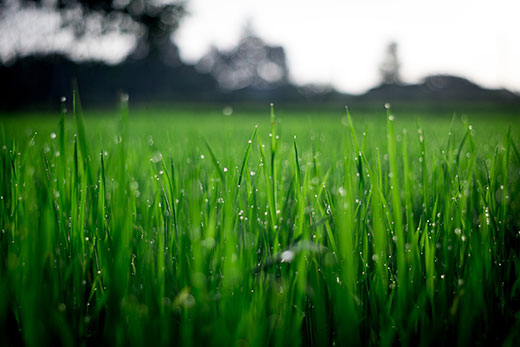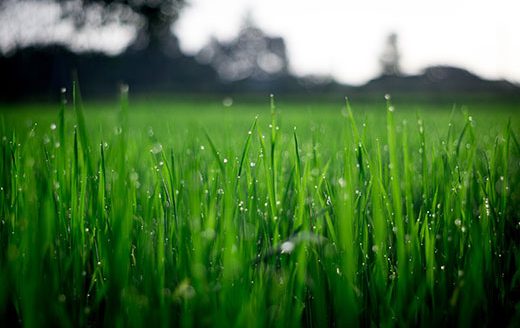Fall mowing will set lawn up for winter success

K-State horticulture expert Cynthia Domenghini shares recommendations for mowing height
Just in case homeowners are tempted to put the lawnmower away early this fall, Kansas State University horticulture expert Cynthia Domenghini suggests that they resist that urge.
“Some people believe taller grass in the winter provides insulation for the plant crowns, protecting them through freezing temperatures,” Domenghini said. “This practice can cause problems when the grass blades fall over, which can create a matted environment perfect for winter diseases.”
Instead, Domenghini says homeowners should take steps to prepare turf for winter.
“This requires action year-round, including fertilizing, watering and mowing,” she said. “Follow recommendations for the variety of turf you are growing, but in general, you should maintain the proper height throughout the year.
For common home lawns in Kansas, the recommended heights are:
- Tall fescue – 2 ½ to 3 ½ inches.
- Kentucky bluegrass – 2 to 3 inches.
- Buffalo grass – 2 to 3 inches.
- Bermuda grass – 1 to 2 inches.
- Zoysia grass – 1 to 2 inches.
“It may be beneficial to adjust mowing height within these recommendations at specific times,” Domenghini said. “For example, warm-season grasses may be mowed taller during late summer and early fall so they can store more carbohydrates for the winter. It may also help to reduce the incidence of cool-weather diseases. But the taller height must still be within the recommendation.”
Domenghini and her colleagues in K-State’s Department of Horticulture and Natural Resources produce a weekly Horticulture Newsletter with tips for maintaining home landscapes and gardens.
Interested persons can subscribe to the newsletter, as well as send their garden and yard-related questions to [email protected], or contact your local K-State Research and Extension office.


